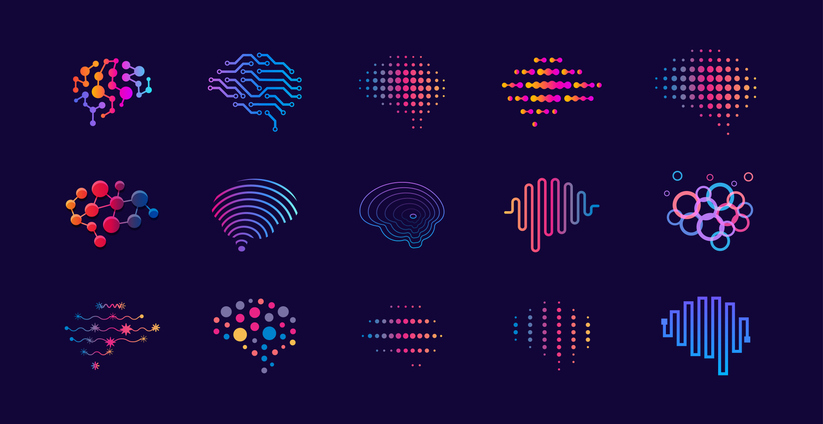By Joanne Tanner & Ari Seligmann
Posted Wed 13 March, 2024
We are operating in an era of unprecedented and rapid transformations, propelled by emerging technologies, such as Artificial Intelligence (AI). Advances and new technologies seem to appear daily, but where can one find reliable examples to judge the potentials of AI for higher education?
Educators regularly rely on a combination of 1) precedents and ideas that have been attempted before and may offer some lessons and cautions 2) verifiable evidence from peer-reviewed academic literature and 3) established theories and ideas that can guide decisions and ground our practices. Evidence-based development, building on solid pedagogical foundations, provides confidence and direction, but evidence takes time to collect.
Where might we find some examples of AI being responsibly used in education in order to spark our imaginations, offer some suggestive models, and provide some confidence and hope for integrating AI into our own pedagogical practices?
The speed of disseminating precedents and academic publications rooted in verifiable evidence is lagging behind the fast paced development and release of new AI tools and approaches. So where might we find some examples of AI being responsibly used in education in order to spark our imaginations, offer some suggestive models, and provide some confidence and hope for integrating AI into our own pedagogical practices?
A quick internet search may yield some clues as many around the world scramble to create useful guidance to inform directions. For example, explore 13 ways you could integrate AI tools into teaching, 101 creative ideas to use AI in education, a crowdsourced collection or UNESCO guidance on possible roles, Stanford’s consideration of the pedagogical uses of AI chatbots or UK National Center for AI insights. You may even try asking for recommendations from your favourite Large Learning Model (LLM) chatbot (Claude, Gemini, Bing Copilot, ChatGPT, etc.) and cautiously consider the suggestions.
Another avenue may be to review the range of examples recently compiled by members of the Monash AI in Education Learning Circle. The Circle is a dedicated group of colleagues who spent the past few months thinking through the range of complex issues and collecting examples of AI use in assessments to share. Examples by and for Monash colleagues who are familiar with our context.

Co-author and contributor Joanne Tanner describes our efforts to bring together practitioners and proponents of AI for education from across all Faculties at Monash to raise awareness and provide guidance for our colleagues.
Our first focus was on AI in Assessments. We tried to remain discipline-agnostic and provide guidance to engage and assist anyone who is interested in using AI in their assessments, but also those who may wish to limit or preclude its use for pedagogical reasons. We have collected over 15 examples showcasing a broad range of AI tools and use cases to make sure that no matter what discipline or what type of assessment you are planning, there will be something there that you can use for inspiration. The resources cover a range of currently available AI tools offering another avenue for educators to explore.
More than recipes to repeat, we tried to find frameworks to think through the examples of AI in assessment.
More than recipes to repeat, we tried to find frameworks to think through the examples of AI in assessment. The collection offers some prototypes that identify core issues and can be modified for diverse pedagogical contexts. No matter your stance or purpose, be it adding AI to a current assessment, creating a new kind of assessment, or carefully ensuring that AI is restricted to ensure demonstration of AI-independent human knowledge and skills, we believe you will find something of value in the collection of examples.
Explore the range of examples gathered from across Monash, which you can sort by categories that suit your interests or needs. However, this collection is simply a few contributions to ongoing conversations, and we invite everyone to post their comments, including thoughts and further examples of designing AI into or out of their assessments.

Joanne Tanner
Joanne is a Senior Teaching Fellow and education focussed academic in the Faculty of Engineering. She is a Chemical Engineer with industry experience in process control and automation, and pilot scale process design and implementation. Joanne has over 7 years of tertiary teaching experience, including unit and course development, and her educational research focuses on the impact of authentic practical experiences, including digitalisation and AI experiences, on engineering student outcomes. Joanne is the Director of the Monash Student Pilot Plant, and is developing a new chemical and analytical Makerspace for Monash students and student teams. She recently served as Comms Stream Leader on the IChemE Digitalisation Technical Advisory Group, where she led the production of a series of articles and a website dedicated to raising awareness of digitalisation technologies, including cybersecurity, amongst the Chemical Engineering community. Joanne is an active member of the AI in Education Learning Circle where she recently led the AI in Assessment Examples Group.

Ari Seligmann
Ari is an educator and administrator with numerous roles within Monash. After helping establish, teach and lead the Architecture program for many years he shifted to the Associate Dean Education for the Art Design & Architecture Faculty in 2022. He was a member of the University GenAI in Education Working Group and a co-author of the report that set out the current directions for the University. Since late 2023 he has been serving as Academic Lead AI in Education within the Deputy Vice-Chancellor Education (DVCE) portfolio and helped establish Monash’s inaugural Learning Circle on AI in Education.

Leave a Reply